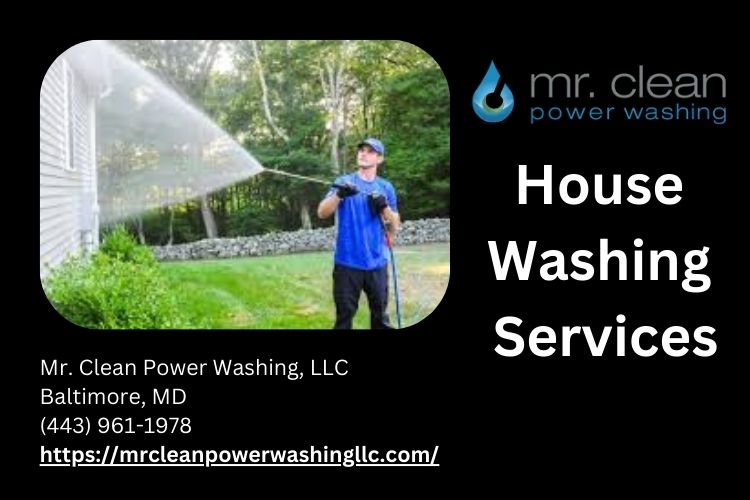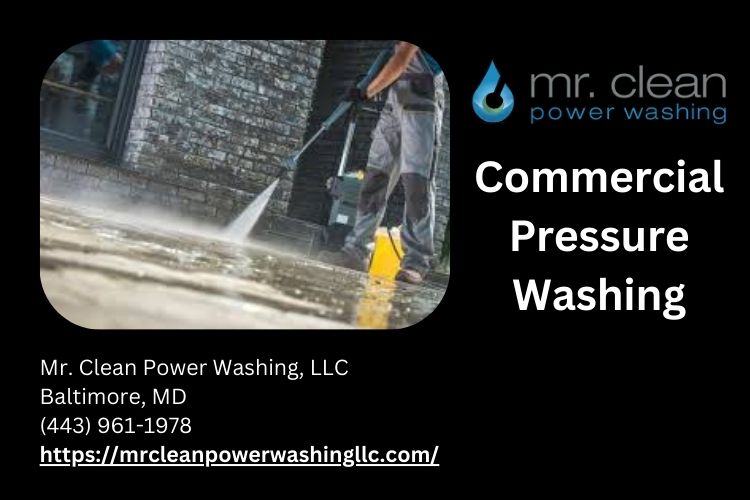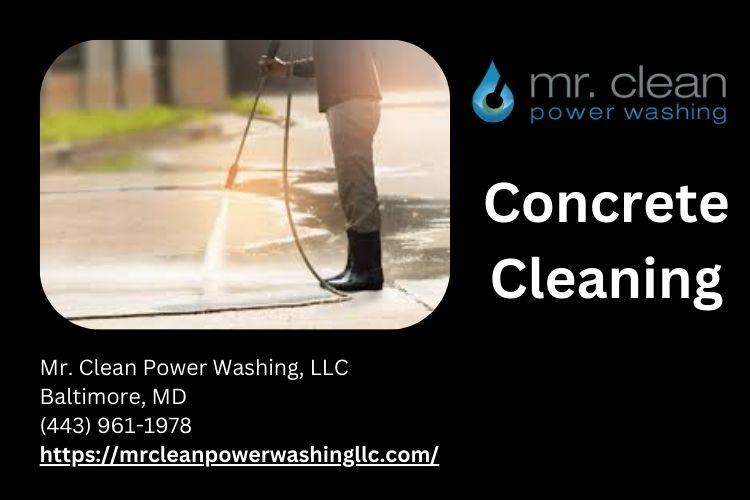Introduction
Pressure washing is a fantastic way to bring new life to surfaces around your home or business. Whether it's your driveway, siding, or outdoor furniture, a good blast of high-pressure water can remove dirt, grime, and even stubborn stains that regular cleaning methods can't touch. In this comprehensive guide titled The Best Practices for DIY Pressure Washing: Tips from Mr. Clean Power Washing, we will explore the ins and outs of pressure washing, providing you with the best practices to ensure you achieve professional results while avoiding common pitfalls.
At Mr. Clean Power Washing, LLC, located in Bel Air, Baltimore, we have years of experience in delivering top-notch pressure washing services. We understand the importance of using the right techniques and equipment to deliver outstanding results without causing damage to surfaces. So, buckle up as we take you through everything you need to know about DIY pressure washing.
Understanding Pressure Washing
What is Pressure Washing?
Pressure washing involves using high-pressure water spray to remove dirt, mold, grime, and other debris from various surfaces. The technique is commonly used for cleaning driveways, sidewalks, decks, patios, and even vehicles.
Why Choose Pressure Washing?
Efficiency: Traditional cleaning methods can be time-consuming and labor-intensive. Pressure washing reduces the time spent on cleaning significantly. Effectiveness: It can easily tackle tough stains and buildup that other methods might struggle with. Versatility: Suitable for a variety of surfaces including concrete, wood, vinyl siding, and more.Choosing the Right Equipment
Types of Pressure Washers
Electric vs. Gas Pressure Washers
- Electric Pressure Washers: Ideal for light-duty tasks like cleaning cars or small patios. Gas Pressure Washers: More powerful and suitable for heavy-duty tasks like commercial pressure washing or large driveways.
Essential Accessories
- Nozzle Attachments: Different nozzles help adjust the pressure according to the surface being cleaned. Surface Cleaners: Great for large flat surfaces; they provide even coverage. Extension Wands: Useful for reaching high places without a ladder.
Safety Precautions
Personal Protective Equipment (PPE)
Before embarking on your pressure washing journey, it's crucial to wear appropriate PPE:
- Safety goggles Non-slip footwear Gloves Long sleeves to protect against water spray
Environmental Considerations
Be mindful of where you're directing your spray:
- Avoid spraying near windows or electrical outlets. Ensure there are no pets or children nearby during operation.
Preparing Your Area
Clear the Space
Make sure to move any obstacles out of the way before starting:
Furniture Planters DecorationsProtecting Surroundings
Cover plants or sensitive areas with plastic sheeting:
- This prevents accidental damage from overspray.
The Best Practices for DIY Pressure Washing: Tips from Mr. Clean Power Washing
When it comes down to it, following certain best practices can make all the difference between a mediocre clean and an exceptional one:
Choose the Right PSI Settings
Use lower settings for delicate surfaces like wood or painted areas while higher PSI settings work well on concrete or brick.
Test Small Areas First
Always test on an inconspicuous area before proceeding with full-scale cleaning to avoid damaging surfaces.
Utilize Proper Techniques
- Start from the top and work your way down. Use sweeping motions rather than focusing on one spot too long.
Use Detergents Wisely

Maintain Consistent Distance
Keep a constant distance (typically 12–24 inches) between nozzle and surface to maintain effective cleaning without causing damage.
Rinse Thoroughly After Cleaning
After completing your wash, always rinse off any leftover detergent to prevent residue buildup.
Common Mistakes in DIY Pressure Washing
Overlooking Surface Preparation
Many first-time users neglect proper surface preparation which can lead to unsatisfactory results.
Using Incorrect Nozzle Types
Using a wrong nozzle can cause serious damage; always refer back to manufacturer recommendations before using different attachments.
Cleaning Specific Areas
Pressure Washing Driveway
When it comes time to tackle your driveway:
Start by clearing away any debris. Pre-treat oil spots with degreaser before pressure washing. Use a fan spray nozzle for wide coverage but be careful not to cause etching in concrete!Commercial Pressure Washing
For businesses looking into commercial pressure washing services:
Understand local regulations regarding wastewater runoff. Invest in quality equipment designed specifically for heavy usage. Schedule regular maintenance washes as part of property upkeep!FAQ Section
FAQ 1: How often should I pressure wash my home?
It’s generally recommended every 1–2 years depending on location and weather conditions!
FAQ 2: Can I use bleach in my pressure washer?
While some bleach is safe when diluted properly; always consult manufacturer guidelines before doing so!
FAQ 3: Is hiring professional services worth it?
Absolutely! Professionals like Mr.Clean Power Washing have expertise that ensures thorough and safe cleaning without damaging property!
FAQ 4: What should I do if I accidentally damage something while pressure washing?
Contact professionals immediately! They’ll assess things before further damage occurs!

FAQ 5: Can I rent a pressure washer instead of buying one?
Yes! Many hardware stores offer rental options that are both economical & convenient!
FAQ 6: Will my water bill increase significantly after pressure washing?
Slightly! But consider it an investment in maintaining property value & aesthetics!
Conclusion
In summary, mastering DIY pressure washing doesn't have to be daunting if you follow these best practices as outlined by experts at Mr.Clean Power Washing! From choosing appropriate equipment & safety measures through effectively tackling various tasks—you're now equipped with knowledge that will help elevate your cleaning game while minimizing risks involved!
If you're ever in doubt about handling tough jobs yourself remember that Mr. Clean Power Washing, LLC professional services like those offered by Mr.Clean Power Washing are just a call away! For inquiries feel free reach out via phone at 443) 998-4599, so you can enjoy pristine surroundings without lifting a finger!
Contact Us
Mr. Clean Power Washing, LLC
Address: Bel Air, Baltimore USA

Phone: (443) 998-4599
This comprehensive guide aims not only at educating readers but also empowering them with actionable insights into effective DIY strategies regarding pressure-washing; ensuring homes remain beautiful & well-maintained year-round!